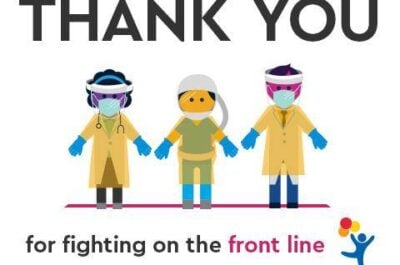It hits you like a wave as you walk away.
Did I sound dumb? Does that person think I’m ridiculous?
The truth is – they probably don’t.
Welcome to the liking gap: the difference between how others perceive us and how we think they perceive us. And according to research, we assume the worst more often than we need to.

Erica Boothby is a psychologist at the University of Pennsylvania. She studies social connection and the psychological barriers that leave us feeling disconnected in our personal or professional lives.
In this Q&A, Boothby explains how the liking gap manifests in our lives and how we might overcome it.
Spoiler alert: it involves more compliments, more appreciation, and more gratitude!
Have something to say? Erica’s advice will help you just in time for your brother’s birthday or colleague’s work anniversary.
What should individuals know about the liking gap?
Our relationships and our well-being depend not only on the reality of what other people think of us but also, in large part, on what we believe others think of us.
These meta-perceptions can profoundly influence our lives.
Take the workplace, for example:
- Beliefs about whether our colleagues like us can affect our sense of belonging and how psychologically safe we feel in the workplace.
- Beliefs about whether our managers take our contributions seriously can affect our sense of efficacy and satisfaction with our job.
But these thoughts are often inaccurate—my research shows that we tend to overestimate how negatively others perceive us, creating a ‘gap’ between reality and our thoughts.

This is one reason why expressing praise and gratitude is important. If people are inclined to underrate their value to others, they will be pleasantly surprised to learn they are appreciated.
So can gratitude bridge the liking-gap?
Closing the liking gap is challenging since we can be quite critical of ourselves. So far, our research has focused on unearthing this tendency across different situations, relationships, and contexts – but I really like the idea of developing an intervention using gratitude.
If our mind is full of negative, self-critical thoughts… well, that’s not so good for mental health.
Whereas if we express gratitude for the people who show up for us, we’re shifting our focus to more positive feelings about the person and our relationship.
You recently co-wrote an article in the Harvard Business Review on the power of compliments. What’s the key takeaway?

Many people shy away from giving compliments because they are nervous about their delivery and underestimate its impact on the recipient. Will I sound awkward? Will I make them uncomfortable?
In one experiment, only 50% of people who wrote down a compliment actually sent the note to their friend, even though they’d already done the hard part – finding the words to express how they felt.
But consistently, we found that receiving praise can make someone’s day better than expected. Neuroscience even suggests that our brains can respond to verbal affirmations similarly to financial rewards.
So we should push back against this pessimistic idea that our compliments don’t matter?
Exactly.
One way to overcome this is to look at your compliments from the recipient’s point of view. That is, focus on the warmth & meaning behind the message.
If we start there, the rest will come.
Looking to spread gratitude to those in your life?
Start a group greeting card and invite others to recognize and appreciate coworkers, friends, and family.




